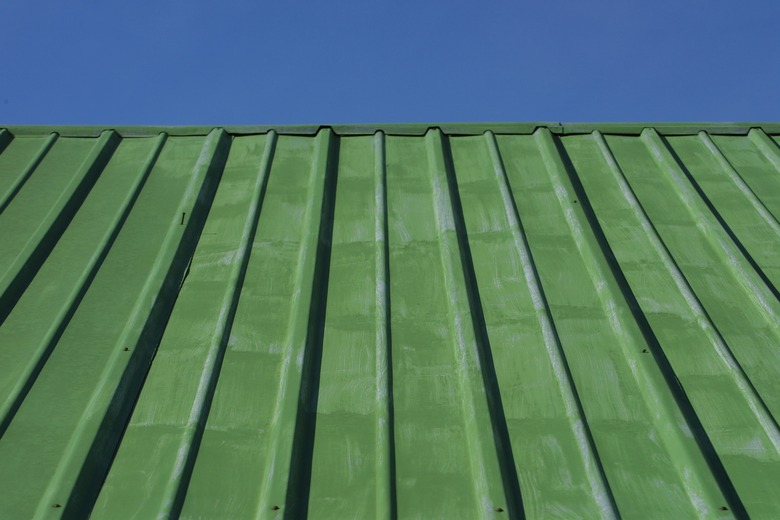Metal Roof 26 Vs. 29 Gauge
Some metal roofing products come in long panels, while other varieties are cut into shingles and tiles. The gauge of metal roofing has no bearing on a product's appearance, but the gauge does matter in areas prone to severe weather. Metal roofing of any gauge is fire resistant and reflects sunlight to keep your home cooler on hot days, but "Consumer Reports" indicates that steel roofing panels may be prone to denting.
Residential Metal Roofs
Residential Metal Roofs
Metal roofing made for homes usually consists of steel or aluminum, but copper, zinc and other metals are used, too. Residential roofing is lightweight no matter what the gauge of the metal is. The heaviest residential steel roofing product weighs about 1.5 pounds per square foot, according to the Metal Roofing Alliance (MRA). Standard metal roofing is treated with a metallic coating that prevents rust, and it may be colored with a baked-on paint finish.
Gauge
Gauge
The gauge of a metal roof refers to its thickness, and the higher the gauge, the thinner the metal. For example, standard 29-gauge steel roofing made in long panels is about 0.36 millimeters thick, and the 26-gauge version is slightly thicker at 0.48 millimeters. Some steel shingles and tiles have a baked-on, granular coating that adds to their thickness, and the MRA notes that those products are usually made from 26-gauge steel.
Weather Resistance
Weather Resistance
Residential metal roofing is attached to a solid surface, but the gauge of the roofing material that you choose can affect whether the metal comes loose in severe weather. Union Corrugating Company manufactures metal roofing in 29, 26 and 24 gauges. The company indicates that 29-gauge metal is the thinnest metal that's recommended for use on homes. Neither 29- nor 26-gauge metals may be the best option if you live in an area that's prone to high winds and severe weather conditions. In such areas, the company recommends using thicker, 24-gauge metal roofing.
Costs
Costs
The cost of a metal roof will vary depending on the gauge and the shape of your roof, but 26-gauge metal roofing usually costs more because it's thicker than 29-gauge roofing. Union Corrugating Company estimates that, as of the date of publication, the total installed cost of metal roofing ranges from $125 to $1,100 per square, which equals 100 square feet. Installing a thicker, premium-grade roof may not have the biggest impact on your costs, because the company notes that labor costs usually make up the largest percentage of roofing installation prices. However, the product price you pay can make the difference between getting unwarranted low-end roofing or premium-grade roofing with a lifetime warranty, according to the company.
